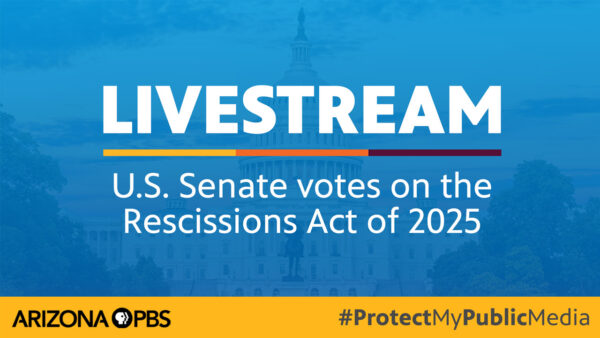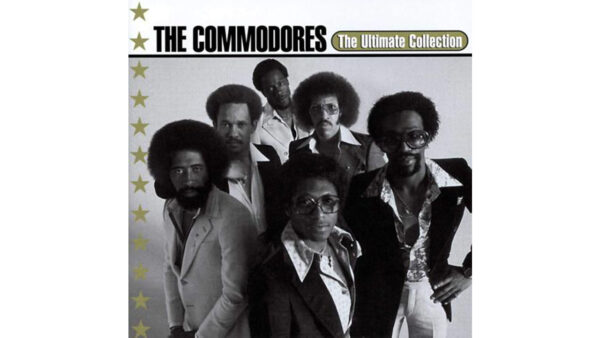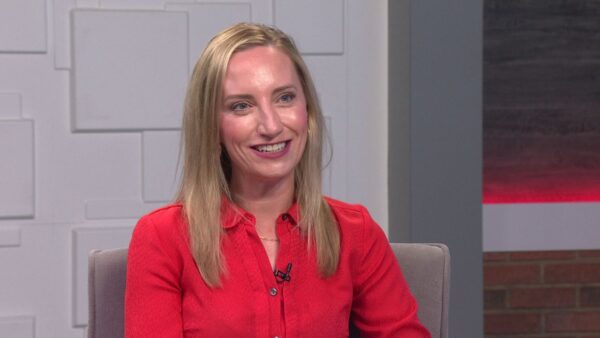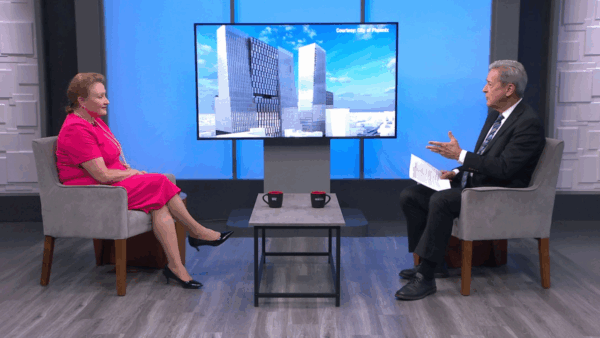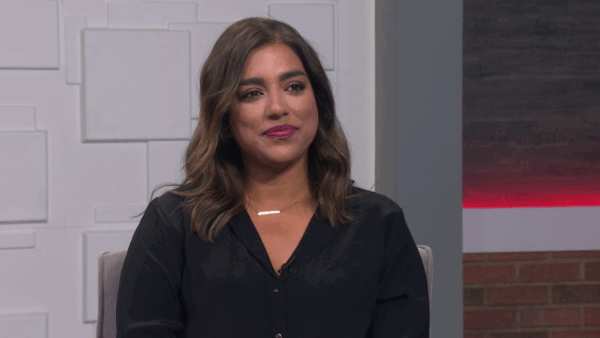A public hearing on a draft environmental impact statement for the proposed South Mountain Freeway will be held Tuesday, May 21. The hearing will provide the public with an opportunity to learn more about the proposed new freeway and provide formal comments. Timothy Tate of the Arizona Department of Public Transportation will discuss the upcoming hearing and the latest on the freeway proposal.
Richard Ruelas: Good evening and welcome to "Arizona Horizon," I'm Richard Ruelas in for Ted Simons. A public hearing on a draft environmental impact statement for the proposed South Mountain Freeway will be held Tuesday, all day, at the Phoenix Convention Center. The hearing will provide the public with an opportunity to learn more about the proposed new freeway and provide formal comments. Timothy Tait of the Arizona Department of Public Transportation is here to discuss the upcoming hearing and the latest on the freeway. Thanks for joining us this evening.
Timothy Tait: Good evening.
Richard Ruelas: Who do you expect to hear from Tuesday?
Timothy Tait: We expect to hear from frankly everybody. Everybody from the community from across the Valley who are interested in this project. The project has regional significance and we want to hear from folks across the region.
Richard Ruelas: Do you expect to hear more so from people against the freeway being built, or against it being built in a certain area, than those who support it?
Timothy Tait: Sure. With events like this you hear from the passionate. It could be folks who are against or very supportive of the current alignment. We expect to hear a lot from those two ends of the spectrum. We encourage everybody to come and learn more about the project and participate in public hearing process.
Richard Ruelas: The environmental study itself is pretty thick, it's a pretty thick report. But I guess if you could summarize it, the thing that surprised a lot of people who read it was the fact that the study said if we don't build the freeway, the air quality gets worse in the city.
Timothy Tait: Not just air quality, but overall things aren't going improve if we don't make improvements to the transportation infrastructure. Air quality, surface transportation, just the ability to move around and support the economy really isn't enhanced as the valley continues to grow. Doing nothing really isn't an option. We have to do something to improve the transportation network. We believe that that something may be the South Mountain Freeway.
Richard Ruelas: Right now the current alignment on the south end, the Ahwatukee end, is pretty set. Seems like there's different options on the west end. Could you describe the preferred option and why maybe that's better than some of the other options?
Timothy Tait: Sure. On the west side there are three options. A 59th Avenue option is preferred. There's a 71st Avenue option and then the option all the way out to Loop 101. The 59th Avenue alignment is identified as the alignment for the freeway. So it's been planned around the freeway infrastructure. Which really supports economic development and community development. That's why several years ago ADOT identified it as the preliminary preferred alternative and why it's now the preferred alternative.
Richard Ruelas: The line has been there for a while. This is a freeway that's been studied for decades. But that 59th Avenue alignment has been sketched out for a while?
Timothy Tait: It has been, yes.
Richard Ruelas: So those who have businesses, there's very few homes, there are apartment complexes. But those who have businesses, live and work in that area, someone should have told them a freeway might be coming down this corridor?
Timothy Tait: That's right. It's no surprise to the entire corridor, it's been studied and analyzed really going back since the early 80s.
Richard Ruelas: What do you expect to hear from people on the south end, the Pecos Road alignment? What kind of comments from that time? From that neighborhood.
Timothy Tait: Sure, well, we expect comments you would really expect any time a freeway would be proposed in a neighborhood and that's impacts from noise, air quality, light effects, losing the view they currently have. There's all kind of impacts. What it comes down to is you can't build a major transportation infrastructure improvement like a freeway without there being some sort of impacts to the community. But we have to weigh those impacts with the benefits. And ultimately this freeway would carry about 140,000 vehicles a day on its planning horizon. So yes, there's going to be impacts. Really, we try to mitigate those as best we can, and really look at what is needed for the future of the corridor.
Richard Ruelas: The cars that would be going through South Mountain Freeway, is that new traffic or is that cars that are being removed from, say, I-10 and the Broadway curve going into downtown or the west side from the east side?
Timothy Tait: It's exactly that, that exchange of traffic from the Southeast Valley to the Southwest Valley. Traffic right now that's using the Broadway curve and Baseline Road and some of those other arterial streets, the Broadway curve, anybody who drives it knows it's highly congested. There are a lot of vehicles going through there right now. We're looking at 2030 and what traffic conditions are going to be there and we're seeing a significant information to traffic. So we're trying to find solutions today to our traffic problems tomorrow.
Richard Ruelas: I know statutorily you have to have this public hearing. On a practical effect, what difference do public comments make? Can they actually move line on the plan?
Timothy Tait: They can make a difference. ADOT hasn't made decision whether or not this freeway will be built. This is still a proposal. That really is the effort right now, to bring this to a conclusion, to make a decision whether or not this freeway will or will not be constructed. That's where we're at right now. That's why we want to hear from people to, make that evaluation a final decision so, people across the alignment can know what's going to happen.
Richard Ruelas: Are the comments sort of gathered, summarized? Are the decision-makers at the hearing all day or given a concise summary of what's said?
Timothy Tait: Because comments come in during the 90-day comment period, they are sorted and responded to in the final environmental impact statement That really allows the document to be shaped based on that 90-day comment period.
Richard Ruelas: And finally right now this study did not include any Gila River land because the tribe has not put it out to the members if they want the freeway to go through tribal land. If that happens, do we have a new preliminary environmental impact study? Another public hearing, another environmental impact study finally?
Timothy Tait: Yeah. If an alignment were to development on the Gila River Indian community through new actions, we would have to study that. And it would certainly be another part of the process.
Richard Ruelas: But the environmental impact would then -- is it changing the entire study, or is it just looking at this small segment that would go through the tribal --
Timothy Tait: It would just be an addendum to the study. It would be additional work to study a new alternative.
Richard Ruelas: So maybe a slight delay but not years-long delay?
Timothy Tait: Could be a couple years.
Richard Ruelas: Timothy Tait, I appreciate you joining us, thank you so much.
Timothy Tait: You're welcome.
Timothy Tate:Arizona Department of Public Transportation;
